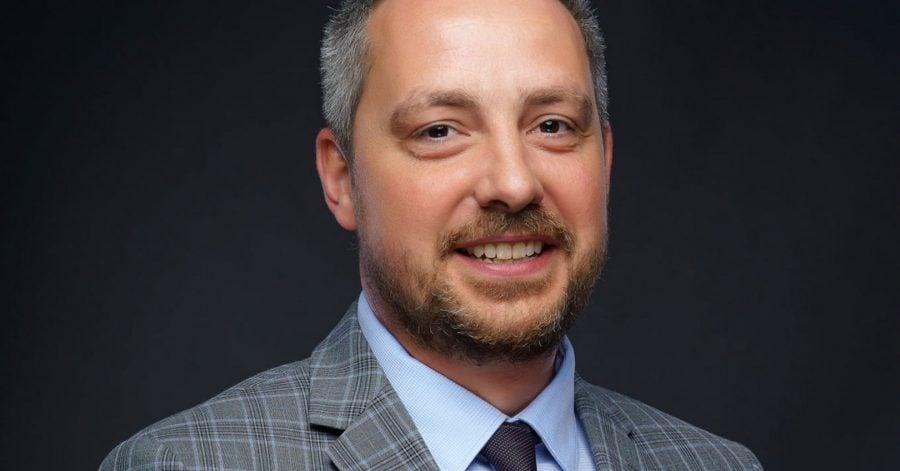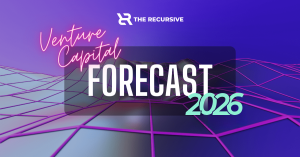At the end of 2021, the Romanian ROCA X Management team announced they have become the first Administrator of the European Venture Capital (EuVECA) in Romania. After an active year for the team, with notable investments in tech startups such as Code of Talent, Frisbo, and Kinderpedia, to name a few, 2022 brings fresh investments in projects such as bonapp.eco and XVision, as well as the raising of a second fund.
ROCA X is a management consulting company with a trained eye for disruptive businesses taking their first steps into the business world. The team targets young entrepreneurs with revolutionary technological ideas, at the MVP or prototype stage, that can change society for the better.
The company is a 2018 spin-off of the Impetum Group, which also has the CITR company that provides resources for the insolvency market, and ROCA, a private equity firm offering know-how to SMEs facing a crisis. The ROCA X team is led by Alexandru Bogdan in the CEO’s chair.
Alexandru has a background in business administration and engineering. He is also a Board Member of different startups, like Benefito Mobile, Code of Talent, and Kinderpedia, and has previously held positions of management.
What is the EuVECA fund?
The European Venture Capital fund was adopted in 2013 to help VCs that manage less than €500M raise funds across the continent. They created a pan-European marketing passport for managers to aid them to invest in startups and early-stage companies.
For a company to qualify as a EuVECA fund administrator, it must be an alternative investment fund in Europe and invest 70% of its capital in projects that are labeled by the regulations as “qualifying investments”.
In the interview below, he shares more about ROCA X’s 2022 plans, the Romanian market, as well as joining EuVECA.
THE RECURSIVE: How would you describe the stage of development of the Romanian VC landscape?
ALEXANDRU BOGDAN: Although growing month to month at an exponential rate, the Romanian ecosystem is still in an early stage. The number of early-stage investors is still small (approximately 10-15, depending on how you count them) compared to the incentives needed by the market.
The landscape is still rather collaborative than competitive as compared to other markets, such as Poland, where the 150 VCs are fighting hard to identify potential deals. We shouldn’t be aiming at such high numbers, but Romania probably needs around 50-70 players before the market can be considered saturated or too competitive.
This number has two meanings: on the one hand, the abundance of capital in the market giving entrepreneurs the fuel to grow their dreams; and on the other hand, it would show the openness of the economy to the adoption of innovation, which is still slow in SEE in general. For this number to be reached, there are still many legislative, fiscal, and financial amendments to be made.
How do you see its evolution?
At this stage of the ecosystem, an even closer collaboration between actors is essential for its development. Participation of new actors is also needed, as local authorities compete to attract the best startups and become innovation hubs; or universities generating spinoffs and technology transfer; or more enterprises being able to adopt more efficient solutions born here, not just the ones that are chosen at the HQ level, to name a few.
In recent months, some positive signs of collaboration have been seen starting with the adoption of the “light” registration regime by the Romanian Financial Supervisory Authority (“FSA”) and some new channels opened for dialogue with central governmental authorities that we hope will bring consistent improvements to the landscape.
Last, but also very important, the comeback of some of the recent exit millionaires into the ecosystem, whether from UiPath or other smaller companies, is expected to significantly accelerate the phenomenon not only through the capital they bring back but also through the real-life knowledge that they have accumulated in their journey.
What inspired you to apply to become the Administrator of European Venture Capital (EuVECA) and what made your application stand out and get approved?
I think we’ve been the first to embrace the change and identify the opportunity in the steps that the Romanian FSA took to simplify the procedures and open the business in this niche. Since transparency has been at the core of our approach since day one, and we were already using most of the industry best practices, the registration process has been relatively easy for us.
But I wouldn’t call it a walk in the park either, being the first comes with some challenges, such as finding the first Romanian chartered appraisers willing to dig into the startup venture valuation methodologies, first Romanian auditors for the niche or first depository, and so on.
The good news for the industry is that the registration process isn’t a contest with a limited number of awards. It is just a procedure that certifies that certain standards and best practices are followed by the teams willing to venture into this relatively new domain for this region of Europe. The “light” registration regime successfully implemented by the FSA resulted in more flexible legislation that will encourage the emergence of micro-alternative investment funds in the field of technology and in other fields, developing the Romanian ecosystem of alternative investment funds.
What is ROCA X’s plan for 2022?
While regular investment fund registration or authorization processes with the Financial Supervision Authorities give you rights to manage such funds in restricted jurisdictions, EuVECA allows the Alternative Investment Fund Managers (AIFM) to manage funds anywhere across the European Union.
This represents a great opportunity for us as a team to expand our operations. ROCA X is getting closer to its harvesting period after what I would call a very intensive investment period, with some promising results already getting visibility.
As a natural next step for an AIFM like ROCA X, we will soon start raising the second fund pursuing the mission to increase our contribution to the creation of an entrepreneurial ecosystem that generates a positive impact on the economy. This will be achieved by identifying innovative ideas and companies founded by entrepreneurs passionate about solving modern and real problems, as well as supporting them through active involvement in company management, resources, networking, know-how, and funding to turn them into tomorrow’s unicorns.
What verticals are you interested in?
We have great confidence in the creative genius of the regional resources. The lack of resources, a heritage from the communist and post-communist times, made entrepreneurs in the region even more efficient in many aspects of the business once they become passionate about solving a problem regardless of whether it’s a deep tech one, environmental one, or a business challenge.
We believe that this added efficiency will generate startups that will conquer international markets once they transcend the fragmented regional market. We’ll maintain our generalist approach in the search for these tech model startups that are scalable at least European, if not globally.
Are you looking for specific solutions?
Not currently. We will be evaluating whether a narrower thesis would be more suitable for our second fund, but at this point, we’re just looking forward to meeting founders in all tech startups related areas with disruptive initiatives and a passion for problem-solving.







